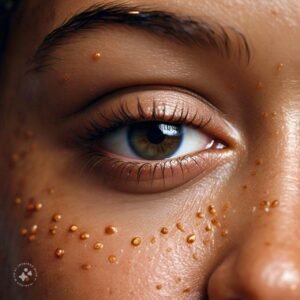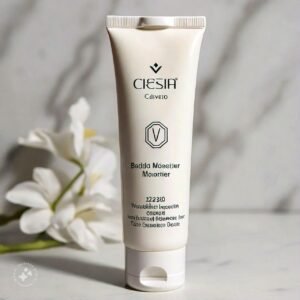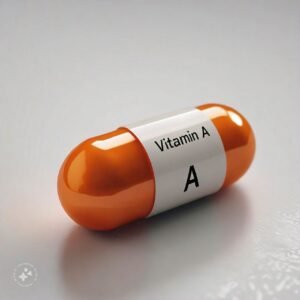Table of Contents
Toggle
What is Generalized Itching?
Pruritus, another name for generalized itching, is an unpleasant and upsetting sensation that can affect vast regions of the skin or the entire body. It can have a significant impact on a person’s quality of life and can be minor, chronic, or severe.

Reasons for Widespread Pruritis
There are two types of causes: those that cause a rash and those that do not.
According to a research generally Eczema and xerosis are the two main and most common causes. The majority of patients will get better with nonpharmacologic treatment, which includes regular moisturizing.
Alongside Rash:
Atopic dermatitis, or eczema – Dermatitis in contact – Psoriasis – Reactions due to allergies – Bites by insects – Fungal infections, such as athlete’s foot and ringworm – Viral illnesses (shingles, chickenpox)
Free of Rash:
Kidney disease – Xerosis, or dry skin – Hepatic illness – Diabetes – Issues with the thyroid – Neuropathy; –
Multiple sclerosis; – Nerve disorders – Specific drugs (antidepressants, opioids)
Causes of Daytime Pruritis:
The surrounding conditions (heat, humidity, sunshine) –
Skin disorders (psoriasis, eczema) –
Bites by insects – Reactions due to allergies
Reasons for Night time Pruritis:
Scabies a skin condition caused by a mite.
Skin dryness
Kidney illness
Diabetes
Multiple sclerosis
Liver illness
Thyroid issues
Nerve diseases (neuropathy)
Transmissible and Non-Transmissible Causes:
Among the contagious causes are: Bites from insects, fungus diseases, and viral infections
Among the non-contagious reasons are:
Skin dryness
Kidney illness
Diabetes
Multiple sclerosis
Liver illness
Thyroid issues
Nerve diseases (neuropathy)
Signs and Symptoms of Various Health Conditions That Cause Itching:
Red, pruritic , scaly patches: eczema
Psoriasis: scaly, red, thick plaques
Pruritis on the arms, legs, and back: a sign of kidney illness
Pruritis on the hands and soles of the feet due to liver illness
Diabetes: Itchiness in the groin, foot, and legs
Therapy:

Topical ointments and creams (antihistamines, steroids) – Oral drugs (opioids, antihistamines) – UV light therapy, or phototherapy
Adjusting one’s lifestyle
(moisturizing, avoiding triggers)
Complications
Skin infections – Disturbances in sleep – Depression and anxiousness Diminished standard of living
Precautionary Steps:
Use mild soaps and cleansers
– Wear loose, breathable clothing
– Avoid triggers (heat, humidity, and sunshine) Drink plenty of water.
Wash your clothes in hot water to get rid of irritants and allergens.
– Hang clothing in direct sunshine to eliminate moisture and sterilize By taking these two precautions, you can lessen the chance that allergies, germs, or fungi that can be present in clothing will irritate or itchy your skin.
Allergens such as pollen, dust mites, or pet dander can be eliminated by washing garments in hot water, and heat from the sun can sterilize clothing and reduce moisture, which inhibits the growth of germs and fungi.
Which defficiency causes Pruritic skin?
It is also caused by a vitamin A deficiency.

The skin will be extremely rough on the surface and dry, itchy, and scaly in the absence of vitamin A. Increase your intake of foods like egg yolks, animal liver, and orange and yellow vegetables like carrots, tomatoes, pumpkins, sweet potatoes, and papaya to obtain more vitamin A.
How to soothe Pruritic skin
The skin can be treated with an ice pack or a cold, damp cloth. Continue doing this for five to ten minutes, or until the Pruritis goes away.
Give your skin some moisture.
Use topical anesthetics that have pramoxine in them.
Apply calming substances like calamine or menthol.
Effective Home Remedies
Coconut oil: To moisturize and relieve itchy skin, apply coconut oil straight to the affected region.
Aloe vera: The anti-inflammatory qualities of aloe vera gel can help relieve irritated skin and lessen inflammation.
Cold compress: To relieve irritation and inflammation, apply a cold compress to the afflicted area.
Tea tree oil: To lessen irritation and inflammation, apply a mixture of tea tree oil and a carrier oil, such as coconut or olive oil, to the affected area.

Apple cider vinegar: To help balance the pH of your skin and lessen pruritis, add apple cider vinegar to your bath water.
Epsom salt baths: Epsom salt has anti-inflammatory and anti-pruritic properties.
Aloe vera gel and vitamin E oil: To relieve pruritic skin, combine aloe vera gel and vitamin E oil, then apply the mixture to the affected region.
Keep your skin moisturized: To maintain healthy, hydrated skin, drink lots of water.

